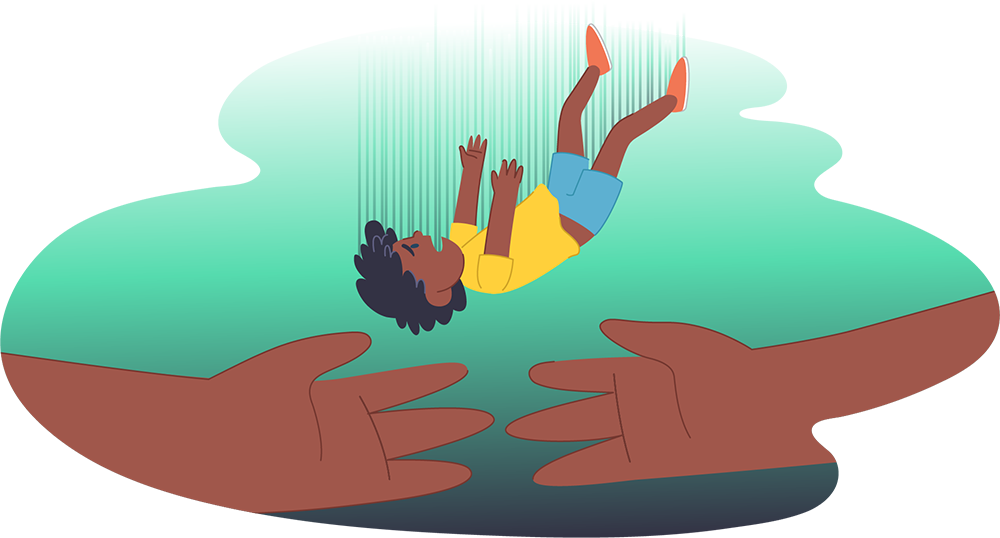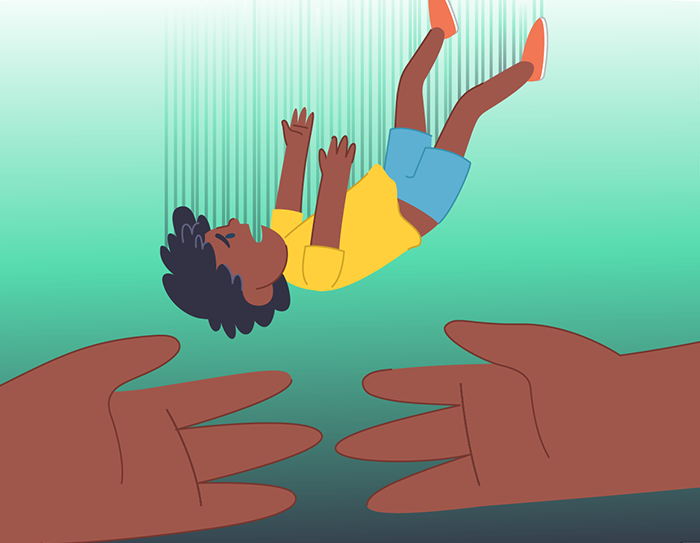Supporting a child through grief and loss
When your child loses someone or something close to them it can be a challenging time. We’ve got some tips to help.

Children experience grief in many ways
Children may experience grief over:
- Death of a family member or friend
- Death of a family pet
- Parents separating or a family break-up
- Moving to a new home or school
- Loss of a favourite toy or comforter
- Changing teachers or classes
- Loss of a friendship or friend moving away
- Having a disability or medical illness
- Finding out a family member is sick
- Loss related to a crisis - fire, flood, accident
How children understand and express loss will depend on their age, developmental stage, past experiences and connection with what they've lost.
Children can be deeply affected by loss
They may experience many emotions like:
Sadness
Relief
Disbelief
Guilt
Frustration
Fear
Anger
Panic
Shock
Confusion
Anxiety
Numbness
Longing
Lack of emotions
Strong feelings can be overwhelming for children. Some might get quiet and withdrawn, while others might express their feelings through challenging behaviours.
Common grief responses in children
Grief can affect children:
What you can do to help
Here are some tips to help you support a child who is experiencing grief and loss:
Offer support, reassurance and comfort
Find time to do enjoyable things together
Acknowledge or help them name or identify their feelings
Let them know they are loved and will always be cared for
Assure them that what’s happened is not their fault
Help them create a diary, memory box or special book to remember the person
Maintain normal routines to help them feel secure
Let them know that it’s ok to play, be happy and have fun
Allow them to ask questions and talk about their loss as much as they want to
Encourage them to talk to a caring adult if they feel uneasy talking to you
Provide clear and age appropriate answers to their questions
Keep things as familiar as you can (school, pets and household possessions)
Talk about your feelings and how you’ve been coping with them
Try to include them in decision-making when it directly affects them
Inform the school of what’s happened so they can provide additional support
Tell them that it is ok to be happy when they have a good memory of the person
Help them find ways to express their feelings through play, writing, drawing, music
Encourage them to spend time with friends
Talking to children about grief and loss
Breaking the news about a death to a child is never easy, but it’s important they know and feel heard and supported by you in the process. Here are some tips to help:
- Try to be as honest and open as possible about what has happened
- Use age-appropriate language so it’s easier for them to understand
- Use concrete words – for example, say ‘died’ or ‘death’
- Avoid using euphemisms like ‘gone to sleep’ or ‘passed away’
- Listen to them - it’s ok not to have all the answers right now
- Answer the questions you can in a calm and consistent manner
- Be patient – they may need to hear the answers several times to process it
- Use storybooks, toys and play to help explain what has happened
- Let them know that they can talk to you at any time
- Ask another trusted adult to talk to your child if you feel too distressed
- Encourage them to express their feelings by sharing your own feelings
Sometimes your own grief will make it difficult for you to support your child. It can be helpful to make time to look after your own wellbeing and seek support when you need it.
There is support available
We're here to help.
Encourage the child in your life to contact Kids Helpline if they need some extra support to cope with their grief.
They can contact us today by giving us a call, starting a WebChat or sending us an email.
You may find talking to somebody outside of the situation helpful. You could try calling Parentline in your state or territory to discuss your concerns.
Check these out too:
Supporting kids through separation or divorce
Finding a way through separation or divorce is never easy. We share ...
READ MEHelping kids identify and express feelings
Learning to identify and express feelings in a positive way helps kids ...
READ MEHow Kids Helpline can help your child
Curious about what Kids Helpline does and how it can help? We’...
READ MEHow Parentline can help you
Parenting can be a tough job but also really rewarding. Talking to ...
READ METalking helps! We’re here for you.
No problem is too big or too small.
We're here 24 hours a day, 7 days a week






